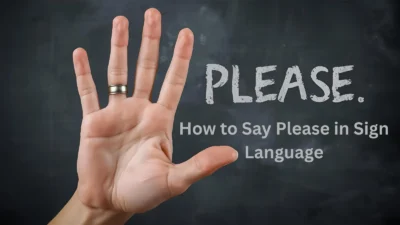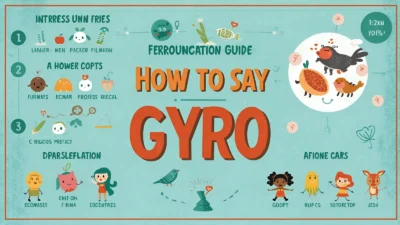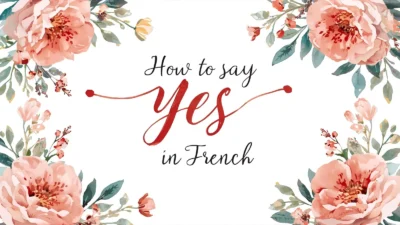Goodbye in French is most commonly said as “Au revoir.” It’s a polite and widely used phrase that works in both formal and casual situations, such as leaving a shop, ending a conversation, or saying farewell to friends.
People search how to say goodbye in French when learning basic French, traveling, or speaking with French speakers. The main intent is to learn a simple, correct phrase that sounds natural and respectful in everyday use.
Using “au revoir” is easy and beginner-friendly. In informal settings, people may also say “Salut” (bye) or “À bientôt” (see you soon). Learning these common options helps you say goodbye confidently in different French-speaking situations.
Say Goodbye in French
Ready to explore the most popular ways to say goodbye in French? Let’s begin with 15 expressions, each with an example dialogue and cultural context.
15 Ways to Say Goodbye in French
| No. | French Phrase | Pronunciation | Meaning / Usage |
|---|---|---|---|
| 1 | Au revoir | oh ruh-VWAHR | Goodbye (formal, standard) |
| 2 | Salut | sah-LOO | Bye / Hi (informal, to friends) |
| 3 | À bientôt | ah byan-TOH | See you soon |
| 4 | À plus | ah ploos | See you later (casual, to friends) |
| 5 | À demain | ah duh-MAN | See you tomorrow |
| 6 | À tout à l’heure | ah toot ah LUR | See you later today |
| 7 | Ciao | chow | Bye (casual, borrowed from Italian) |
| 8 | Bonne journée | bun zhoor-NAY | Have a good day |
| 9 | Bonne soirée | bun swah-RAY | Have a good evening |
| 10 | Bonsoir | bon-SWAHR | Good evening (as a goodbye) |
| 11 | Adieu | ah-DYUH | Farewell (final, rarely used now) |
| 12 | À la prochaine | ah lah proh-SHEN | Until next time |
| 13 | On se voit bientôt | on suh vwah byan-TOH | We’ll see each other soon |
| 14 | À plus tard | ah ploos TAR | See you later (slightly formal) |
| 15 | Porte-toi bien | port-twah byan | Take care (to a friend) |
How to Say Goodbye in French to a Girl
When saying goodbye to a girl in French, you can use the same phrases like au revoir (goodbye) or salut (bye) depending on the formality.
If you want to sound warmer or more personal, you can add phrases such as bonne journée (have a good day) or à bientôt (see you soon).
In friendly settings, you might also hear bisous (kisses), which is a very common way for French speakers to say goodbye to close female friends.
1. Au revoir – Goodbye

Origin:
Literally means “until we see each other again.” It’s the standard and most widely used French farewell.
Example:
👤 User A: Merci pour tout. Au revoir !
👤 User B: Au revoir ! À bientôt !
Use: Neutral and polite; works in almost all situations.
2. Salut – Bye / Hi
Origin:
Derived from the Latin salutare, meaning “to greet.” It’s used both as hello and goodbye in casual settings.
Example:
👤 User A: Salut, je dois y aller !
👤 User B: D’accord, salut !
Use: Informal; great for friends, peers, or kids.
3. À bientôt – See you soon
Origin:
Means “until soon,” expressing the hope or intention to meet again soon.
Example:
👤 User A: J’y vais. À bientôt !
👤 User B: Oui, à très bientôt !
Use: Friendly and warm; used when you plan to see the person again.
4. À demain – See you tomorrow

Origin:
Literally “until tomorrow.” A specific version of “À bientôt.”
Example:
👤 User A: On se retrouve demain ?
👤 User B: Oui, à demain !
Use: Casual or formal, when you’ll see someone the next day.
5. Adieu – Farewell (final goodbye)
Origin:
From à Dieu, meaning “to God.” It implies a long or permanent goodbye.
Example:
👤 User A: Je pars pour toujours… adieu.
👤 User B: Adieu, mon ami. Tu vas me manquer.
Use: Poetic, emotional, or when parting forever.
6. À tout à l’heure – See you later (today)
Origin:
Means “until later today.” Often used when parting for a short time.
Example:
👤 User A: Je vais faire des courses. À tout à l’heure !
👤 User B: D’accord, à tout’ !
Use: Common among friends, family, or coworkers.
7. À plus tard – See you later
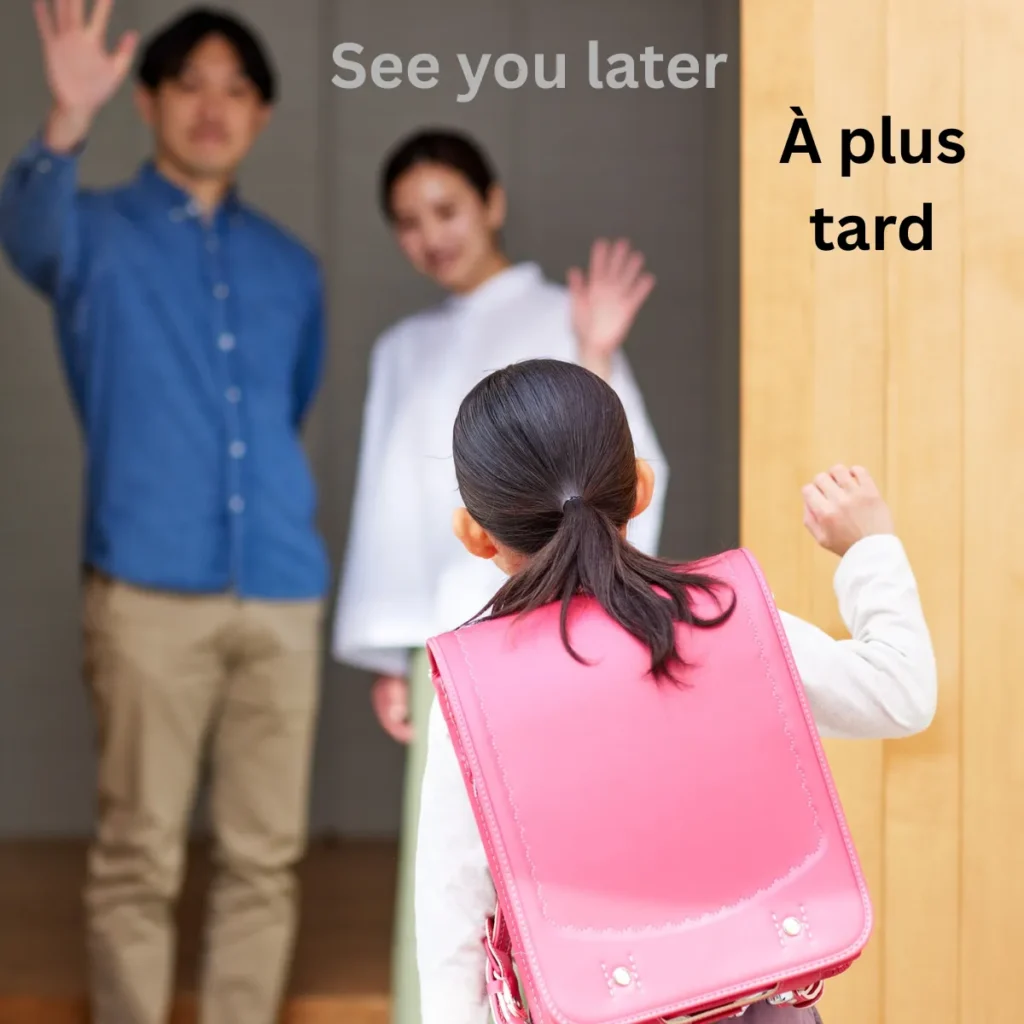
Origin:
Literally “until later.” Often shortened to À plus !
Example:
👤 User A: Je te laisse, à plus tard !
👤 User B: Ça marche, à plus !
Use: Casual and modern; friends or informal settings.
8. Ciao – Bye (borrowed from Italian)
Origin:
Adopted from Italian; popularized in French pop culture and youth slang.
Example:
👤 User A: Bon, je file. Ciao !
👤 User B: Ciao ciao !
Use: Very informal; trendy and used among young people.
9. Bonne journée – Have a good day
Origin:
Literally “good day.” Often used in stores, cafes, or emails.
Example:
👤 User A: Merci pour votre aide. Bonne journée !
👤 User B: À vous aussi, au revoir !
Use: Polite and semi-formal; often added after “au revoir.”
10. Bonne soirée – Have a good evening
Origin:
Similar to “bonne journée,” but for the evening.
Example:
👤 User A: Je rentre chez moi. Bonne soirée !
👤 User B: Merci, toi aussi !
Use: Polite; good for leaving after 5 PM or at events.
11. Bonne nuit – Good night
Origin:
Used to say goodbye before bedtime.
Example:
👤 User A: Je vais dormir. Bonne nuit !
👤 User B: Dors bien, bonne nuit.
Use: Intimate or family-oriented; bedtime only.
12. On se voit plus tard – We’ll see each other later
Origin:
Colloquial phrase, slightly more relaxed than “à plus tard.”
Example:
👤 User A: Je dois y aller. On se voit plus tard ?
👤 User B: Oui, pas de souci.
Use: Friendly, informal.
13. Je m’en vais – I’m leaving / I’m off
Origin:
From the verb s’en aller, meaning “to leave.” It emphasizes your action rather than the goodbye itself.
Example:
👤 User A: Bon, je m’en vais.
👤 User B: OK, à bientôt !
Use: Casual, used to announce departure.
14. On se reparle bientôt – Talk soon
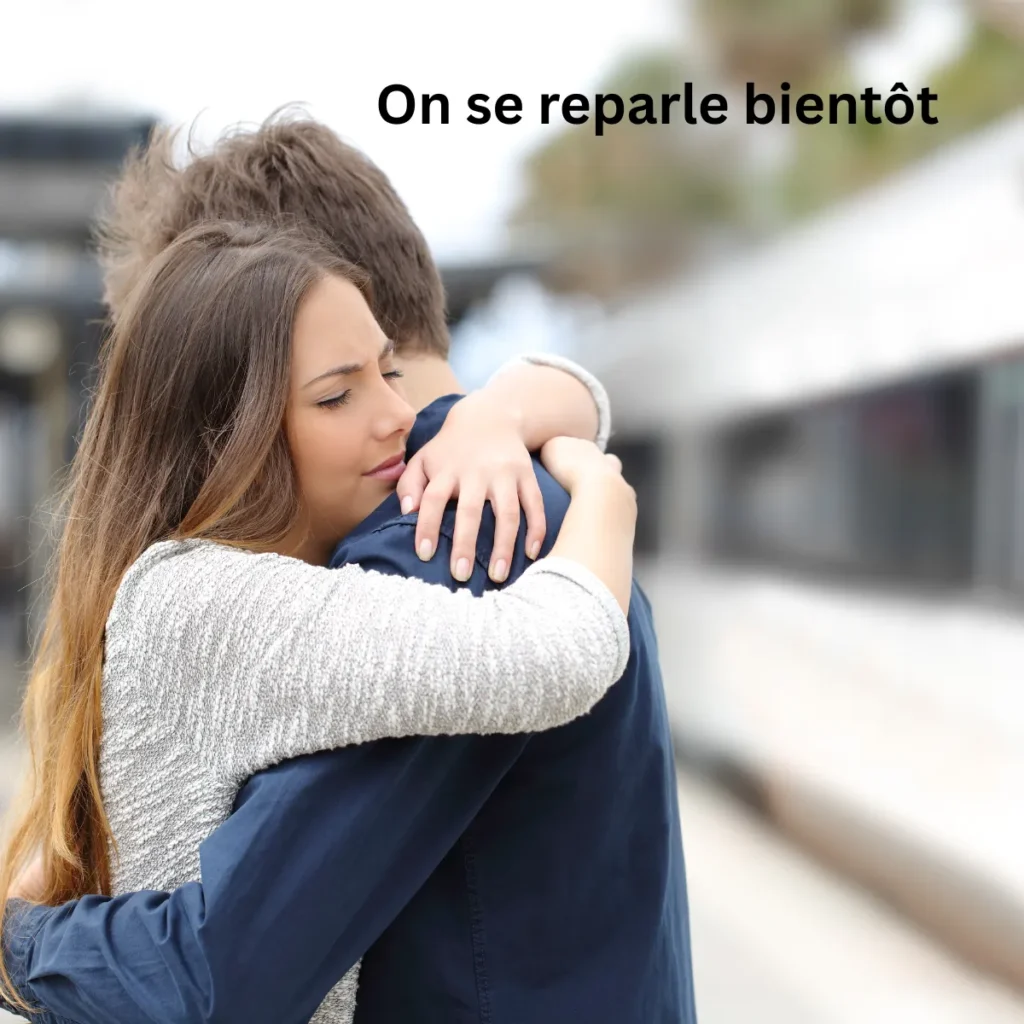
Origin:
Modern, especially common in texting or emails. Emphasizes continued communication.
Example:
👤 User A: Merci pour la discussion. On se reparle bientôt !
👤 User B: Avec plaisir !
Use: Casual, often digital.
15. À la prochaine – Until next time
Origin:
Literally “until the next [time].” It’s open-ended but warm.
Example:
👤 User A: C’était super. À la prochaine !
👤 User B: Oui, à la prochaine fois !
Use: Friendly and semi-formal.
FAQs
1. What is the most common way to say goodbye in French?
The most common phrase is “Au revoir,” which works in almost every situation.
2. Is there a casual way to say goodbye?
Yes. You can say “Salut,” which means both hi and bye among friends.
3. How do you say goodbye formally?
Use “Au revoir” or “Bonne journée/Bonne soirée” depending on the time of day.
4. What does “À bientôt” mean?
It means “See you soon.”
5. How do you say “See you tomorrow” in French?
You say “À demain.”
6. Can I say “Bye” in English in France?
Yes, many French people understand “bye,” but it sounds casual.
7. How do I say “Goodbye forever” or something very final?
You can say “Adieu,” but it’s rarely used unless you truly don’t expect to meet again.
8. What’s the polite way to end a conversation?
Say “Bonne journée” (Have a good day) or “Bonne soirée” (Have a good evening).
9. How do children say goodbye?
Kids often say “Au revoir” or the cute version “Bye-bye.”
10. Is there a romantic way to say goodbye?
Yes—phrases like “À très bientôt” (See you very soon) or “Bisous” (Kisses) sound affectionate.
11. How do you say goodbye on the phone?
Use “Au revoir” or “Bonne journée.”
12. Is there a formal workplace goodbye?
Yes, “Bonne journée, à demain” works well in professional settings.
13. What’s a friendly goodbye to a group?
You can say “À plus tout le monde !” meaning “See you later, everyone!”
14. Is “À plus” slang?
Yes, it’s a casual short form of “À plus tard” (See you later).
15. How do you say “Take care” in French?
You can say “Prends soin de toi” (informal) or “Prenez soin de vous” (formal).
Conclusion:
Learning how to say goodbye in French gives you the ability to adapt your farewells to any situation. From the formal au revoir to the casual salut with friends, each phrase reflects both respect and warmth. By practicing these variations, you’ll leave every conversation sounding polite, confident, and culturally aware.

